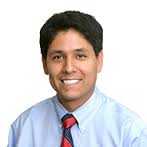17 Jul Obesity Paradox: Overweight and Mildly Obese Stroke Patients Have Better Prognosis
MedicalResearch.com Interview with:
Hugo J. Aparicio, MD, MPH
Assistant Professor
Vascular Neurology, Department of Neurology
Investigator, The Framingham Heart Study
www.framinghamheartstudy.org
Boston University School of Medicine
Boston, MA 02118-2526
MedicalResearch.com: What is the background for this study?
Response: The association of body weight with survival after stroke has been studied before and is a controversial topic. Results have varied between studies and have often been contradictory. The observational findings that carrying extra weight can be protective after having a disease, like stroke or heart attack, has been called an obesity paradox, since obesity in itself is a risk factor for cardiovascular disease and mortality in the general population. Stroke research has focused on hospitalized stroke patients with weight measured at the time of the stroke. BMI is often missing in this group of patients, especially when a stroke is severe or the patients cannot report their weight. In the FHS we have data regarding weight prior to stroke, obtained during regularly scheduled research exams, with multiple data points on body weight and vascular risk factors over time. All before the stroke occurs. And have also compared survival outcomes with a group of control participants, those without stroke, to see if the so-called ‘obesity paradox’ is a non-specific finding seen in older adults or seen specifically in stroke patients.
MedicalResearch.com: What are the main findings?
Response: We analyzed both groups separately, stroke cases and controls, to see if overweight or obesity had any effect on survival over 10 years, compared to the people who were normal weight. We controlled for factors such as smoking, cancer, dementia and ‘vascular risk factors’ like high blood pressure, diabetes and cholesterol.
We found that participants who were overweight or mildly obese had better survival after stroke than normal weight participants and the survival benefit was strongest in males or in those younger than age 70. Even removing those with weight loss in the 5-10 years prior to the stroke, or controlling for any smoking prior to the stroke, there was still a protective effect.
MedicalResearch.com: What should clinicians and patients take away from your report?
Response: The mechanism by which increased weight is protective after stroke is not clear. In normal-weight or underweight persons with stroke, outcomes may be worse due to less metabolic reserve for recovery, relative frailty, or a poor nutritional state. Obese patients, specifically, may have lower rates of smoking or may have some poorly understood physiologic or metabolic advantage.
Overweight or obese people may also be more likely to be on medications to address risk factors or to have closer follow-up with physicians due to their appearance. Overweight may also be more protective at certain ages. In our study, the association of overweight and improved survival was strongest in those with stroke younger than age 70, compared to controls.
It is unknown whether a biological mechanism associated with excess weight is responsible for the survival benefit, or whether other factors, such as more intensive risk factor control in the overweight or obese, produced this finding. Further research is needed to determine appropriate clinical recommendations for weight loss or weight maintenance after stroke. This is important because once you have had a stroke you are at high risk for mortality and further cardiovascular disease, so specific interventions (lifestyle or otherwise) and public health interventions to prevent disease in this specific population are greatly needed.
MedicalResearch.com: What recommendations do you have for future research as a result of this study?
Response: Future research investigating underlying mechanisms for the obesity paradox might additionally explore the roles of adipocytokines, longitudinal macronutrient and caloric intake, or poststroke dietary choices. Weight gain, weight loss, physical activity, and caloric restriction effects can be studied in animal models.
MedicalResearch.com: Is there anything else you would like to add?
Response: Our results should not be misinterpreted to indicate that obesity has an overall protective health effect with regards to population stroke mortality. Whereas the current study investigated survival after stroke, it is important to note that stroke incidence is still higher among persons who are overweight or obese. Weight is an independent risk factor for stroke and stroke is associated with higher mortality. In the population, mortality is higher among overweight and obese persons with stroke, even though the stroke case fatality rate may be lower when compared to normal weight persons.
Despite our findings, the obesity paradox still warrants skepticism. At the very least, findings from multiple studies have found a J-shaped curve for this association, showing worse survival for those who are underweight or very obese and with a nadir around BMI 25-30. A more appropriate term for this phenomenon may be an ‘overweight paradox’, since weight does not really appear to be protective over a certain BMI, at least among stroke survivors.
Thank FHS participants, FHS staff, and my co-investigators particularly Dr. Alexa Beiser and Dr. Sudha Seshadri for their hard work and guidance with this project.
MedicalResearch.com: Thank you for your contribution to the MedicalResearch.com community.
Citation: Overweight, Obesity, and Survival After Stroke in the Framingham Heart Study
Hugo J. Aparicio, Jayandra J. Himali, Alexa S. Beiser, Kendra L. Davis‐Plourde, Ramachandran S. Vasan, Carlos S. Kase, Philip A. Wolf, Sudha Seshadri
https://doi.org/10.1161/JAHA.116.004721
Journal of the American Heart Association. 2017;6:e004721
Originally published June 24, 2017
Note: Content is Not intended as medical advice. Please consult your health care provider regarding your specific medical condition and questions.
Last Updated on July 17, 2017 by Marie Benz MD FAAD

